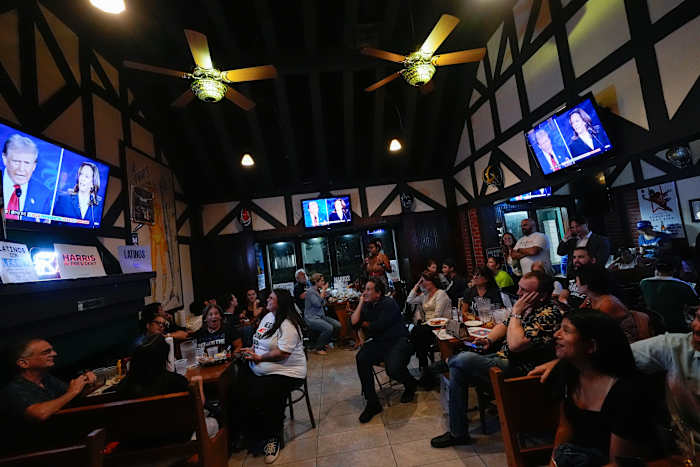In the aftermath of a heated presidential election, many Americans, like Ziad Aunallah from San Diego, find themselves turning away from political news due to exhaustion. The sentiment is echoed in a recent survey by the Associated Press-NORC Center for Public Affairs Research, which reveals that about two-thirds of American adults are limiting their consumption of political media.
Television ratings and a new poll highlight this trend. Ziad Aunallah, reflecting the mood of numerous Americans, cites mental fatigue as a reason for stepping back from political news. “Everyone knows what is coming and we are just taking some time off,” he remarked. According to the poll, a significant portion of Americans feel overwhelmed by political media compared to other topics such as economy or climate change.
The data indicates a partisan dimension to this disengagement. The poll shows that roughly 70% of Democrats are distancing themselves from political news, while around 60% of Republicans feel similarly, despite having reasons to celebrate Trump’s victory. Independents also report a comparable level of disengagement.
Media networks have observed notable shifts as well. Post-election, MSNBC and CNN ratings have plummeted, with MSNBC experiencing a 54% drop and CNN a 45% decline. Conversely, Fox News, favored by Trump supporters, saw a 13% increase in viewership, capturing 72% of evening viewers on three major cable networks since the election. Historically, networks witness a dip in viewership following an election loss, as seen with MSNBC in 2016 and Fox in 2020.
Viewers like Sam Gude, an electrician from Nebraska, reveal an aversion to post-election coverage. “The last thing I want to watch is the interregnum,” he stated. With networks struggling to retain audience engagement, MSNBC experienced an additional setback when viewership for morning shows decreased by 35% following hosts’ interactions with Trump. Nevertheless, MSNBC anticipates a revival in interest as Trump’s administration begins.
Digital platforms show resilience against these trends. CNN’s streaming and digital ratings remain steady despite declines in traditional television viewership. As Americans disconnect from cable television at accelerating rates, MSNBC strives to counteract this trend through upcoming corporate changes, including a spin-off from its parent company, Comcast.
Survey results suggest a general public desire for less political discourse from celebrities and large corporations. Political endorsements from public figures like Taylor Swift during the election cycle have met with more disapproval than support from Americans. Guede, for instance, seeks alternative news sources, turning to platforms like YouTube for content that aligns with his interests.
Network viewers recommend focusing on more substantial, issue-based reporting to reclaim their attention. Kathleen Kendrick, a sales representative from Colorado, calls for more balanced and well-researched news coverage, expressing frustration with the current one-sided narratives. Similarly, Aunallah desires a richer, more varied media landscape, emphasizing news beyond the usual loud, biased commentary. “It’s their own fault that I’m not watching,” he concluded, pointing to the overwhelming focus on election news as a primary reason for audience fatigue.
As the nation navigates its political future, a significant portion of Americans is seeking respite from relentless news cycles. Whether these trends will reverse with new leadership remains uncertain, but the demand for more insightful and balanced reporting persists. Media networks face the challenge of adapting to shifting viewer preferences while maintaining their relevance in an evolving media landscape.
Source: News4jax








